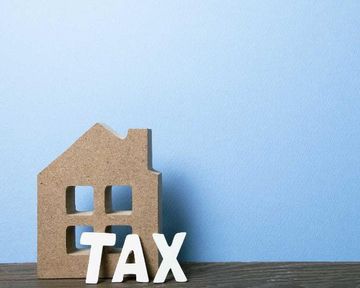What you need to know about turning a freehold property into a sectional title
Both sectional title and freehold ownership come with their own sets of pros and cons. For those who prefer one type of ownership over the other, it is sometimes possible, albeit a somewhat lengthy process, to change the zoning of an existing property.
Regional Director and CEO of RE/MAX of Southern Africa, Adrian Goslett explains that sectional title homes share one stand and usually come in the form of semi-detached houses, townhouses, flats or apartments, and duet houses. Unlike a sectional title, a freehold property entitles a buyer to the full ownership rights to the entire property, which includes all the structures as well as the land on that it is built.
“Those who have particularly large plots may want to change a freehold title to sectional title units by sub-dividing the land, usually for investment purposes. By doing this, the owner of the land can sell the sectional title property/properties to other owner/s while keeping his/her section of the land,” he explains.
To achieve this, the owner will need to approach the designated land surveyor (developer) to draft a sectional plan of extension which must be approved by the local Surveyor General Office and registered with the local or relevant Registrar of Deeds. As a rough guide of what to expect during this process, the following must be lodged with the Registrar of Deeds:
- An application under section 11(1) of the Sectional Titles Act 95 of 1986.
- The title deed of the land/property.
- Two copies of the Sectional plan.
- Schedule of conditions in terms of section 11(3)(b) of the Sectional Titles Act 95 of 1986 read with regulation 10(3).
- Rules for the scheme.
- Documents for the extension of the scheme.
- Consent by mortgagee and mortgage bond.
- Certificate of real or exclusive use areas – if required.
- Certificate of real right of extension – this allows the developer the right to extend the scheme right by erecting buildings for a stipulated period of time.
- Certificates of registered title.
Bear in mind that the developer can only begin construction once funding has been secured. The developer can then transfer the units to a third party and this will establish the body corporate.
It is also possible to change a sectional title back to a freehold property. In terms of section 14(8) of the Sectional Titles Act, a registered sectional plan shall, subject to certain conditions, only be cancelled by an order of the court. The effect of the cancellation of a sectional plan is that the original title deed will revive. This, in turn, will require that if the body corporate consists of more than one owner, the owners will have to have reached an agreement on the further ownership and subdivision of the land.
“While it is easier to find a home that already has the zoning you would prefer, there could be multiple reasons why an owner may want to change the ownership rights of a property. Speaking to a local RE/MAX agent can provide buyers with an idea of what sorts of properties are available to them, which can help them decide which is best suited to their needs,” Goslett concludes.

